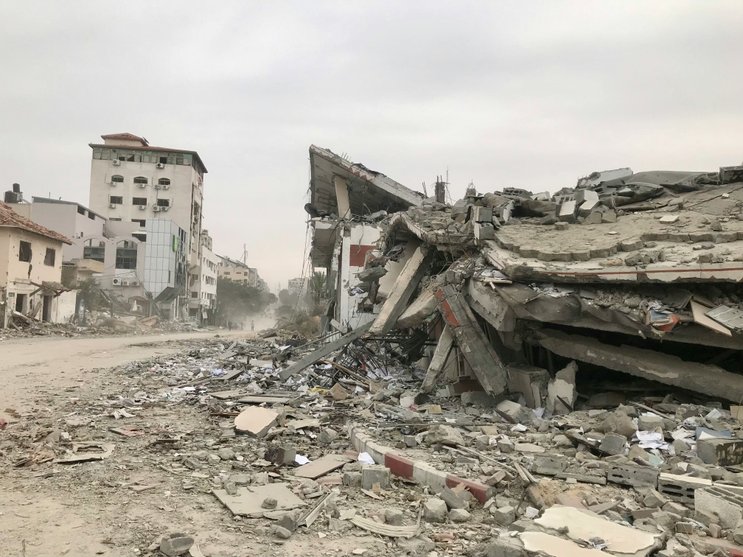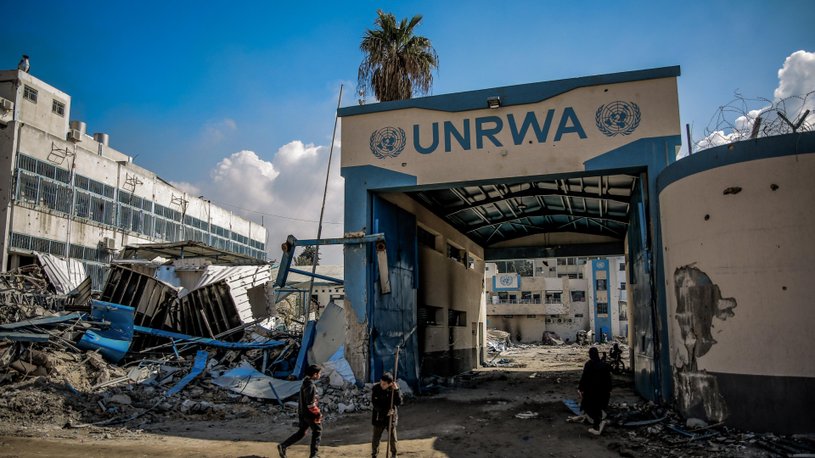16.06.2024
The War in Gaza: Economic and Political Implications for the MENA Region and the Global Stage
The ongoing conflict in Gaza has not only captured international attention due to its humanitarian impact but also holds significant implications for the economic and political landscape of the Middle East and North Africa (MENA) region and the world at large. As the war continues, it is reshaping geopolitical alliances, influencing global markets, and altering the socio-economic fabric of affected nations. This blog explores these multifaceted consequences.
Economic Implications
1. Regional Economic Instability
The Middle East and North Africa (MENA) region is particularly susceptible to economic shocks due to its reliance on specific sectors like oil, tourism, and foreign investment. The war in Gaza has exacerbated existing vulnerabilities.
Trade Disruptions: According to the World Bank, the MENA region's trade volume decreased by 5% in the last quarter of 2023 due to heightened security risks and disrupted supply chains. The Suez Canal, which handles approximately 10% of global trade, has seen a 15% reduction in shipping traffic since the conflict escalated, impacting global supply chains.
Tourism Decline: The tourism sector, a significant revenue source for countries like Egypt and Jordan, has suffered considerably. Egypt reported a 20% drop in tourist arrivals in the first quarter of 2024, as per the Ministry of Tourism, translating to a loss of approximately $2 billion in revenue.
2. Global Energy Markets
The MENA region is a cornerstone of the global energy market, and conflicts in this area historically lead to volatility in oil prices.
Oil Price Volatility: Brent crude oil prices surged by 10% to $95 per barrel in the immediate aftermath of the conflict's escalation, according to the International Energy Agency (IEA). The potential for further escalation has led to market anxiety, with projections suggesting prices could breach $100 per barrel if stability is not restored.
Shift to Alternative Energy: The ongoing instability is prompting a faster transition to renewable energy. According to a report by the International Renewable Energy Agency (IRENA), global investments in renewable energy increased by 15% in 2023, with Europe and North America leading the push to reduce dependency on MENA oil.
3. Humanitarian and Reconstruction Costs
The financial burden of humanitarian aid and reconstruction in Gaza is immense.
International Aid: The United Nations Relief and Works Agency (UNRWA) estimates that $1.5 billion is required for immediate humanitarian assistance in Gaza. The international community has pledged around $1 billion so far, highlighting the significant gap in funding.
Rebuilding Infrastructure: The Palestinian Authority estimates the cost of rebuilding Gaza’s infrastructure to be around $4 billion. This includes repairing homes, schools, hospitals, and other essential facilities. These reconstruction efforts will likely span several years and require sustained international financial support.
Political Implications
1. Geopolitical Realignments
The Gaza conflict is influencing regional alliances and power dynamics, reshaping the geopolitical landscape.
Shifts in Alliances: Iran, a key supporter of Hamas, is using the conflict to strengthen its influence in the region. Conversely, the normalization of relations between Israel and several Arab states under the Abraham Accords is being tested. Saudi Arabia, which was considering normalization with Israel, has put these plans on hold, reflecting the complex regional dynamics.
Impact on Peace Processes: The conflict has stalled the Israeli-Palestinian peace process. The United States, traditionally a key mediator, has seen its influence wane. According to a Pew Research Center survey, only 30% of respondents in the MENA region believe that the U.S. can effectively mediate peace, down from 45% in 2020.
2. Domestic Political Changes
The conflict is also affecting domestic politics within MENA countries, influencing government stability and policy priorities.
Government Stability: Public opinion in many MENA countries is strongly sympathetic to the Palestinian cause. Governments failing to adequately respond to these sentiments face internal unrest. In Jordan, for instance, large-scale protests have erupted, putting pressure on the government to take a firmer stance against Israel. A poll by the Arab Barometer shows that 60% of Jordanians disapprove of their government's handling of the conflict.
Policy Shifts: Countries are likely to increase military spending, diverting resources from social programs. Saudi Arabia, for example, has announced a 10% increase in its defense budget for 2024, according to the Saudi Ministry of Finance. This shift in budget priorities could impact long-term socio-economic development, as funds are reallocated from education and healthcare to defense.
3. Global Diplomatic Efforts
The international community's role in addressing the conflict is crucial, leading to renewed diplomatic efforts and changes in foreign policies.
United Nations and International Diplomacy: The UN has ramped up its diplomatic efforts, with the UN Security Council holding multiple emergency sessions. However, achieving consensus remains challenging due to differing interests among permanent members. The latest UN resolution calling for a ceasefire was vetoed by two members, reflecting these geopolitical tensions.
Foreign Policy Adjustments: Major powers are adjusting their foreign policies in response to the conflict. The European Union has increased its humanitarian aid budget for the MENA region by 20%, according to the European Commission. The U.S. has also reassessed its aid to Israel, with Congress debating conditional clauses linked to human rights.
Conclusion
The war in Gaza is reshaping the economic and political landscape of the MENA region and has significant global repercussions. Economically, it disrupts trade, tourism, and energy markets while imposing substantial humanitarian and reconstruction costs. Politically, it influences regional alliances, domestic stability, and international diplomatic efforts. The conflict underscores the fragility of regional stability and the interconnectedness of global systems. Addressing the immediate and long-term consequences requires comprehensive and collaborative solutions, emphasizing the need for sustained international engagement and support.






